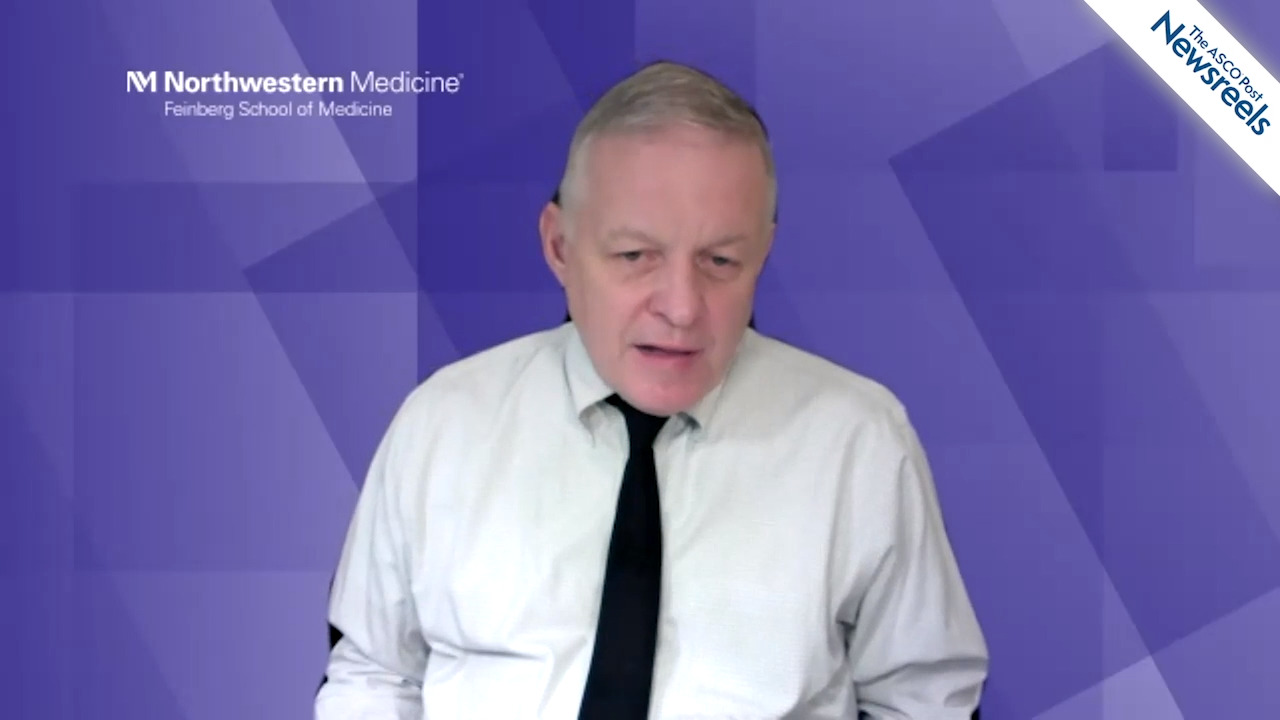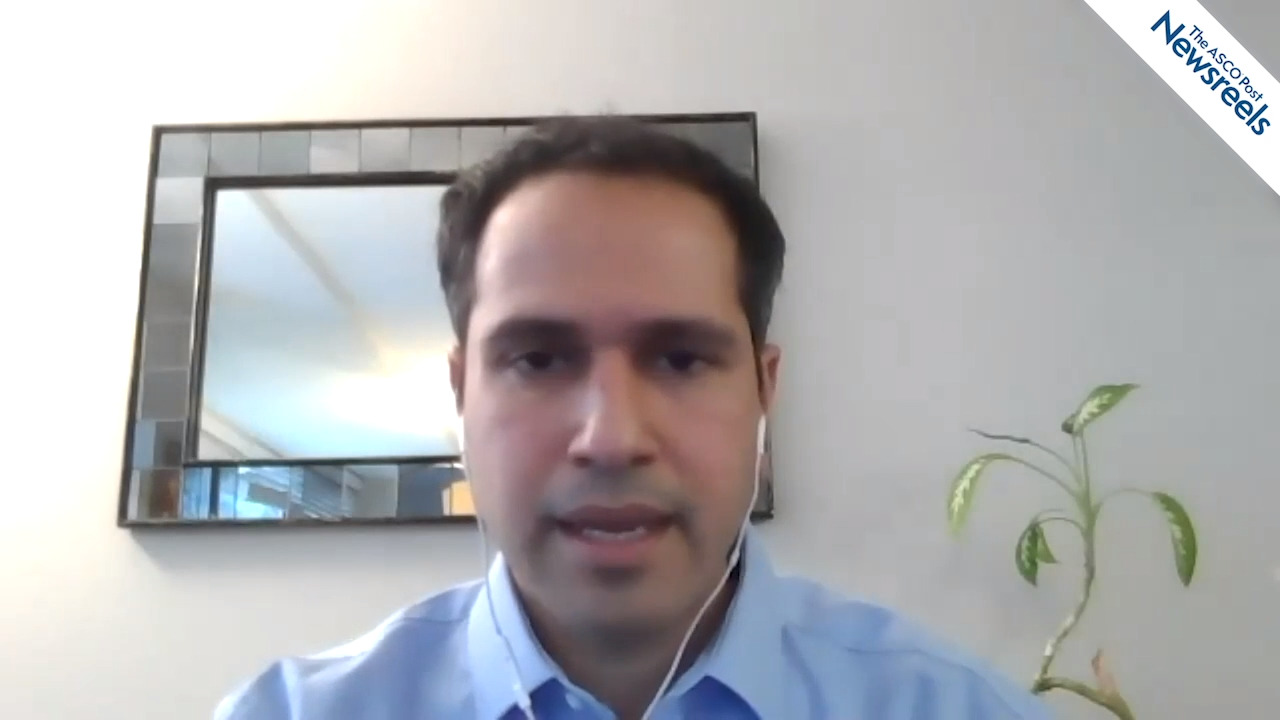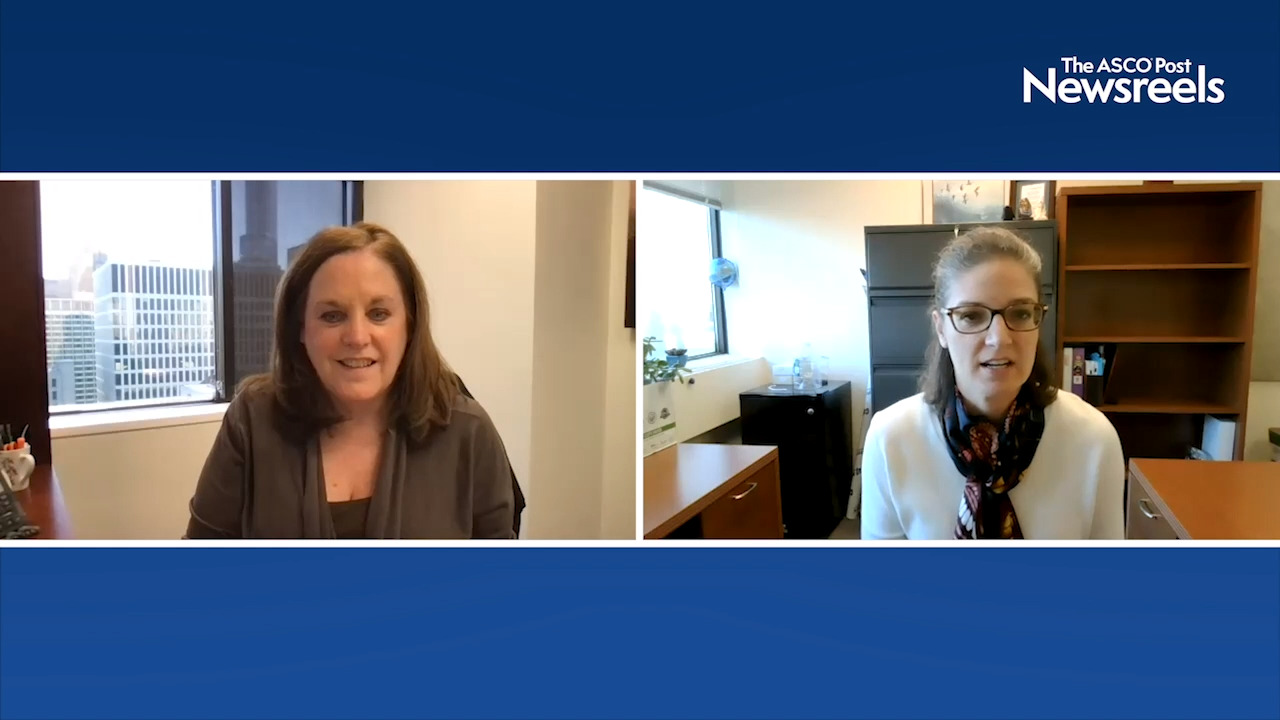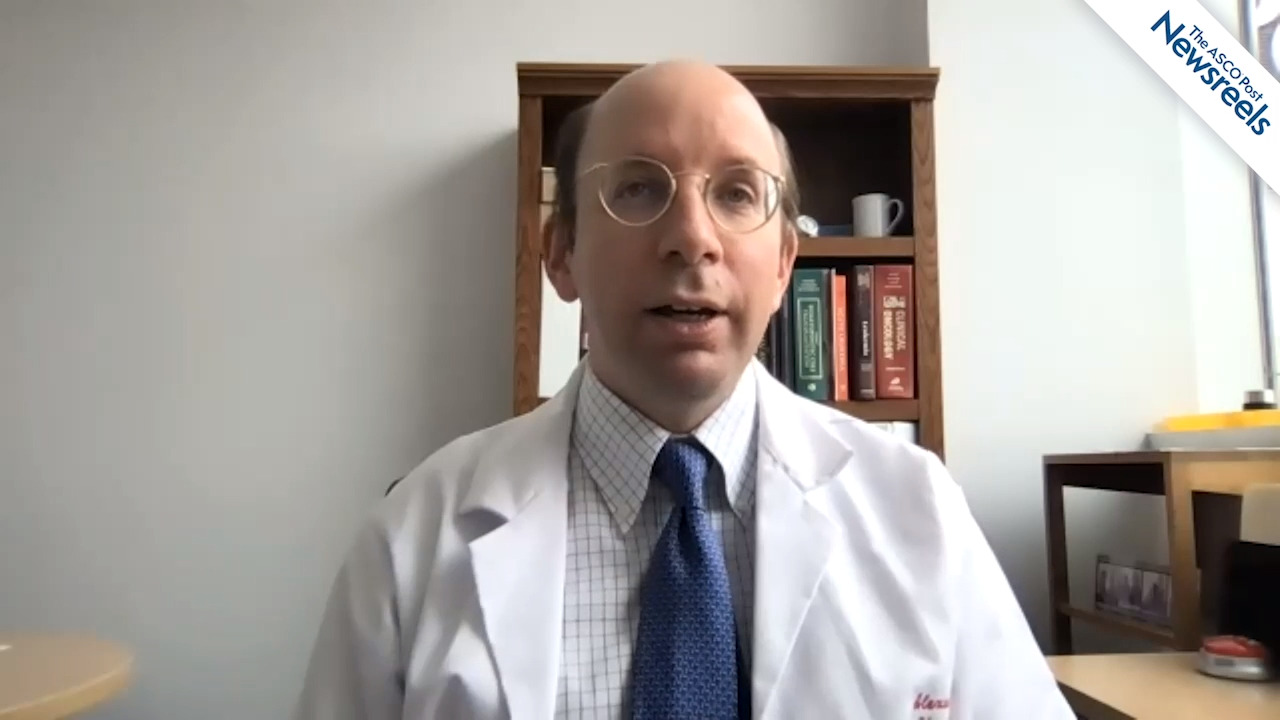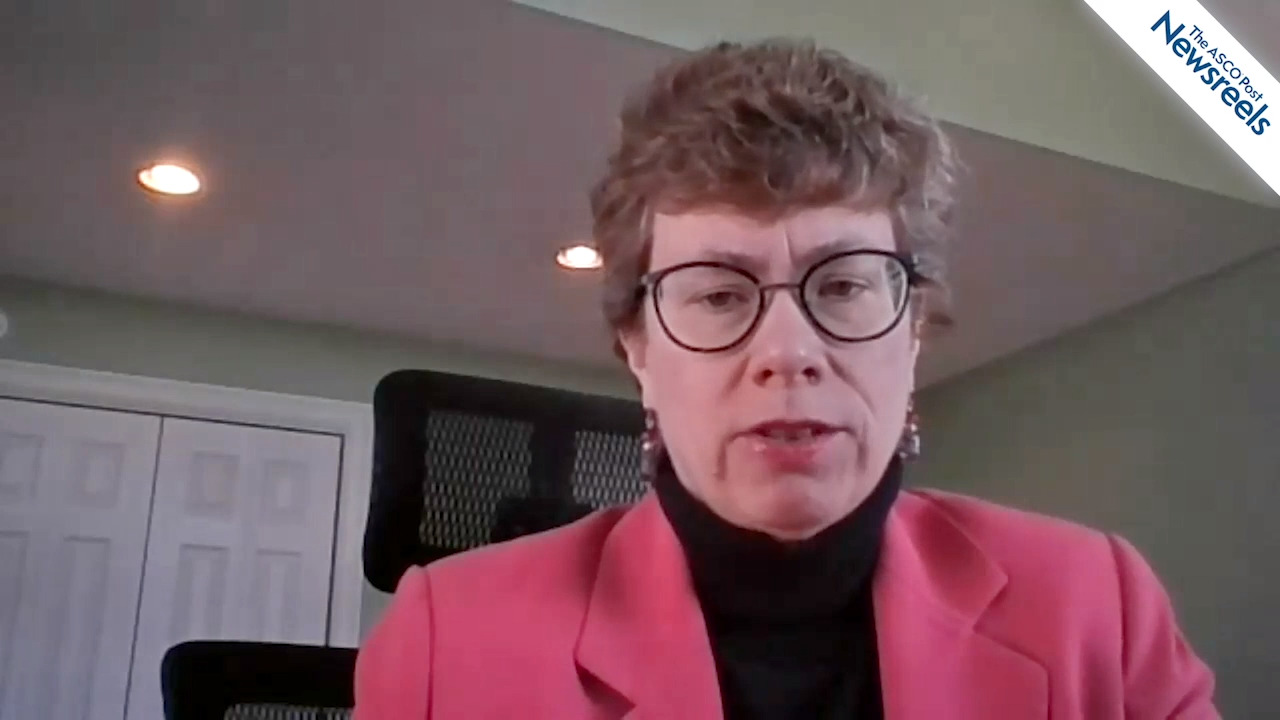Thomas K. Varghese, Jr, MD, on the Effects of the COVID-19 Pandemic on Cancer Care
NCCN 2021 Virtual Annual Conference
Thomas K. Varghese, Jr, MD, of Huntsman Cancer Institute at the University of Utah, summarizes a panel discussion on how the COVID-19 pandemic has interrupted cancer screenings, when telemedicine works and when it doesn’t, opening alternative care sites in the community, and the emotional and mental toll the coronavirus has taken on health-care providers.
Related Videos
The ASCO Post Staff
William J. Gradishar, MD, of Robert H. Lurie Comprehensive Cancer Center of Northwestern University, discusses the latest recommendations from the National Comprehensive Cancer Network for treating patients with triple-negative breast cancer; data on early-stage and advanced disease; and the role of checkpoint inhibitors, antibody-drug conjugates, and PARP inhibitors.
The ASCO Post Staff
Shivan J. Mehta, MD, MBA, of Abramson Cancer Center at the University of Pennsylvania, discusses how insights from behavioral economics could be harnessed to improve HPV vaccination rates, thus lowering the rate of cervical, genital, and head/neck cancers, all of which are linked to HPV.
The ASCO Post Staff
Crystal S. Denlinger, MD, of Fox Chase Cancer Center, and Mary F. Mulcahy, MD, of the Robert H. Lurie Comprehensive Cancer Center of Northwestern University, discuss biomarkers for determining treatment; immune checkpoint inhibitors; when to employ such treatments as platinum/fluoropyrimidine and fam-trastuzumab deruxtecan-nxki; and other second- or later-line therapies such as paclitaxel, ramucirumab, irinotecan-based regimens, and trifluridine/tipiracil.
The ASCO Post Staff
Alexander E. Perl, MD, of the Abramson Cancer Center at the University of Pennsylvania, discusses the major changes in 2021 to the NCCN Clinical Practice Guidelines in Oncology for managing acute myeloid leukemia, including venetoclax plus azacitidine, a new standard of care in patients ineligible for intensive induction; oral azacitidine maintenance in fit patients unable to complete intensive consolidation chemotherapy or proceed to transplant; and an increased focus on minimal residual disease status post-induction.
The ASCO Post Staff
Jennifer R. Brown, MD, PhD, of Dana-Farber Cancer Institute, discusses treatment choices for patients with relapsed or refractory CLL/SLL, when to stop therapy due to adverse events, BTK inhibitors and their second-generation counterparts, the need for ways to manage disease progression on novel drugs, and minimal residual disease as a predictor of response.
